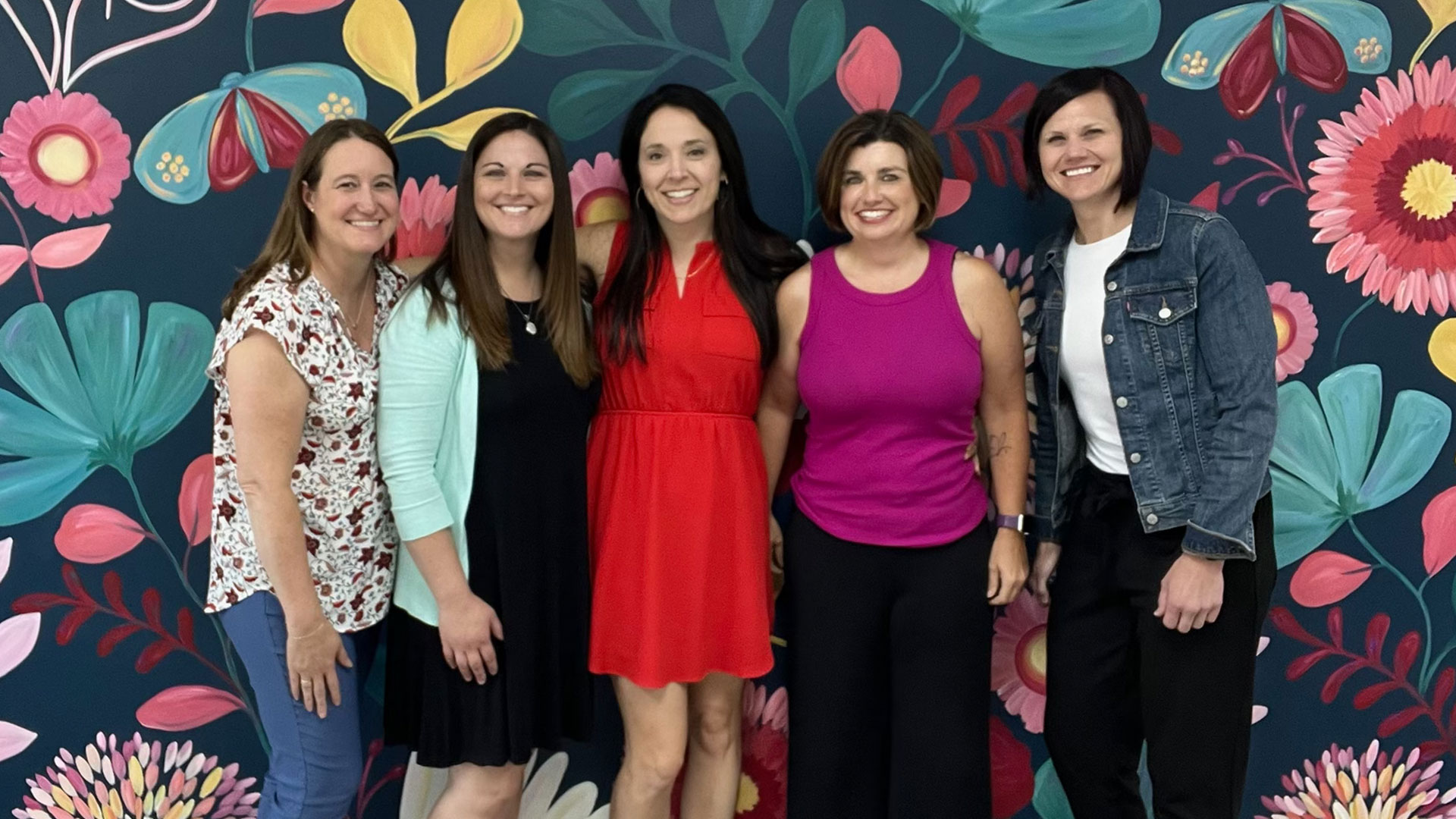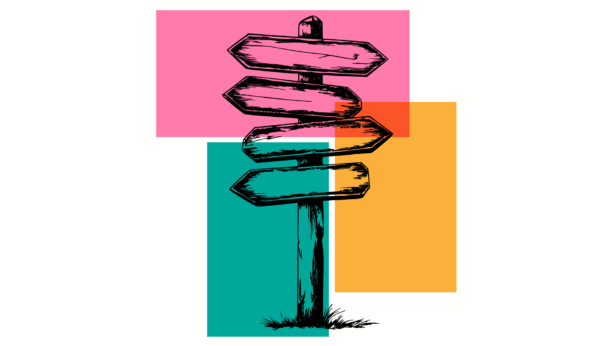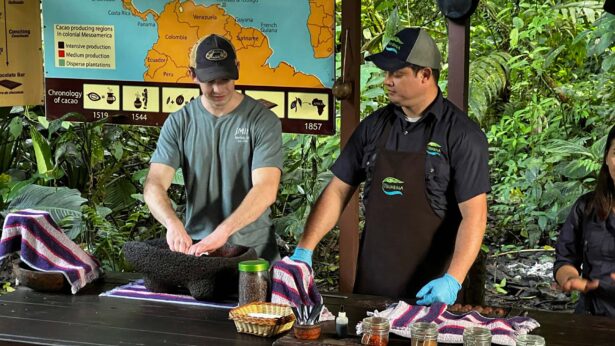During an early October afternoon, Tess Frear sits in her office at Helping Mama Knoxville’s (HMK) 6,500-square-foot warehouse on the city’s western edge. Frear has already driven a cargo van stocked with diapers and other maternal products to one of the organization’s partner agencies in Athens. Now her phone blinks with updates.
By the following day, she must coordinate the delivery of more than 30 pallets of items—diapers, donated boxes of baby wipes, hygiene products and formula. She and her staff will pack their van and a borrowed trailer, then head to Cocke and Unicoi counties to help families affected by the destructive flooding from Hurricane Helene.
She’s tired. But she knows she’s not nearly as tired as the thousands of families—mostly single mothers with young babies—the organization has served since a divine whim in 2018.
“Selfishly, giving back is good for the soul,” says Frear, who has grown HMK to work with 77 partner agencies representing every county in East Tennessee. To date, she and her tireless team have provided 1.5 million donated items to more than 43,000 individuals across the region.
According to the National Diaper Bank Network, 47 percent of all families in the United States cannot afford a regular supply of diapers.
When Frear crossed the stage in 2006 to receive her bachelor’s degree in child and family studies from UT Knoxville, the Farragut native’s picture of the future was still blurry. As a student, she had interned with The McNabb Center in a regional intervention program for infants and mothers. After graduating, she worked for the center’s Healthy Families initiative and later as a preschool and special education teacher before transitioning into marketing and event planning roles.
“My goal was always to have the flexibility to spend as much time with my children as possible,” Frear says. Yet even as she gave herself to her children, she thought of others like them who lacked the same access to resources.
In 2014, Frear’s cousin, Jamie Lackey (Knoxville ’00), launched the first iteration of Helping Mamas in Atlanta. One weekend, Frear drove with her daughter to volunteer at a community clothing drive Lackey had organized. Suddenly, the image of what Frear was supposed to do sharpened.
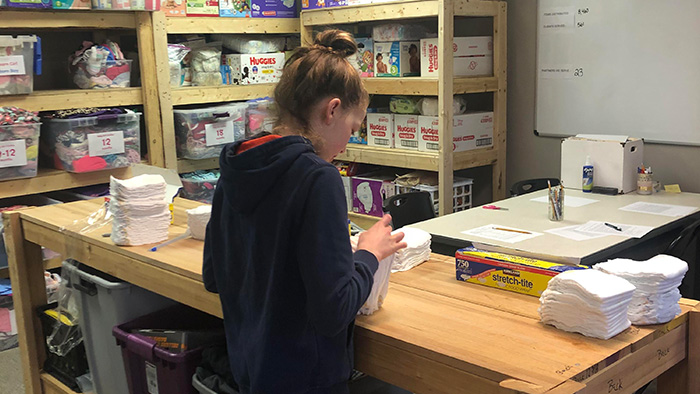
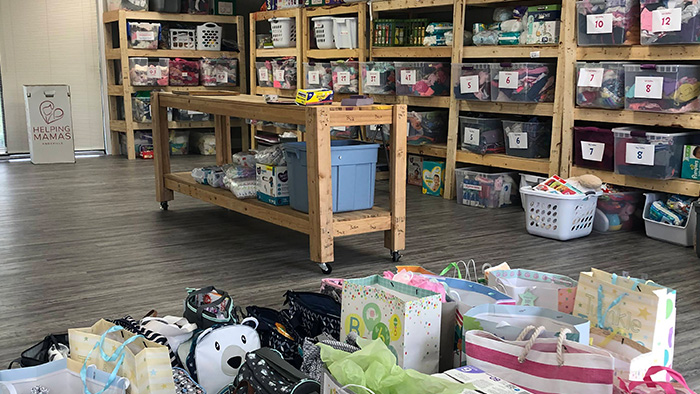
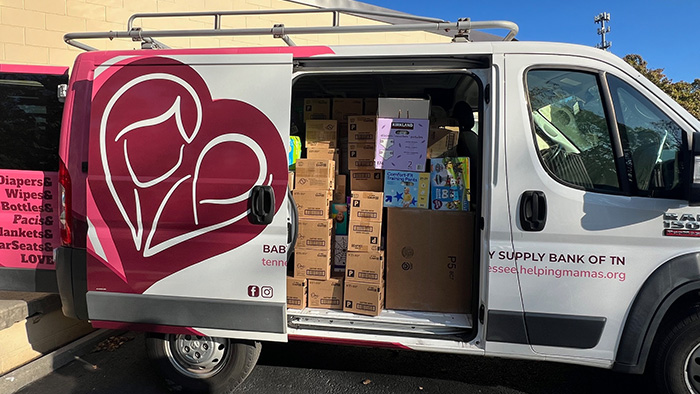
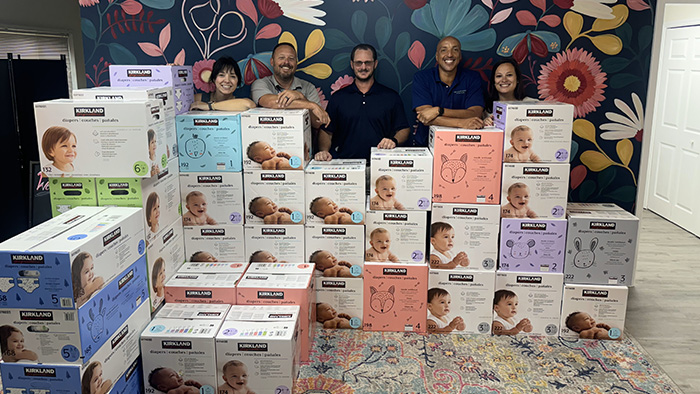
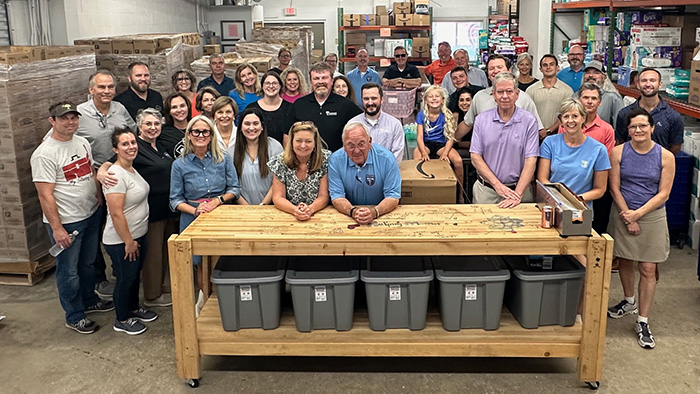
Click to expand images
According to the National Diaper Bank Network, 47 percent of all families in the United States cannot afford a regular supply of diapers. One-third cut back on buying food or skip meals to afford them. A quarter of caregivers have missed work or school because they lacked clean diapers to give their children’s child care providers.
Currently, the only federal assistance program that can be used for diapers is the Temporary Assistance for Needy Families. In Tennessee, the maximum monthly benefit for a parent with two children is $387, which must also cover utility bills, rent, clothing and transportation. In 2024, the state became the first to offer free diapers to families enrolled in its Medicaid program, TennCare. Today, families can receive up to 100 diapers per month. While that helps, surveys indicate newborn babies can require upwards of 10 diapers a day (or around 300 a month), with toddlers requiring about half as many.
Frear decided she would work to bridge the gap for her community, just as her cousin had in Atlanta.
“I went to my dad and brother—at the time, I was working for their company as an office manager—and I said, ‘Look, I’m going to start collecting items to give away,’ and I need to keep them here,’” Frear says about the day in 2018 when Helping Mamas Knoxville was born. Through the years, aided by grants from the United Way of Greater Knoxville and private donations, she accomplished key goals. She purchased the van to deliver to regional partners and leased increasingly larger facilities.
Diaper access remains the organization’s focus. HMK is the only registered diaper bank within a two-and-a-half-hour drive of Knoxville. But its scope is much larger.
Learn more about Helping Mamas Knoxville and follow along with their work on Instagram @helpingmamasknoxville.
“You meet moms, and you realize diapers are just one of the things they need,” Frear says.
Each Wednesday, on Facebook and Instagram, the organization issues a call for needed items, including period products, pacifiers, maternity and children’s clothing, car seats, pack-n-plays and baby bathtubs.
HMK has grown beyond the frantic videos Frear put out six years ago asking for donations. In September, as part of its Fill the Warehouse Challenge, the team collected 39,692 diapers and raised over $10,000. Recently, HMK has supported the Big Orange Pantry at UTK as well as provided diapers and other items for new mothers at UT Medical Center.
“Now, I’m thinking a lot more about how to keep the lights on,” Frear says. “A nonprofit is a business as well. To keep doing good, we need all kinds of support.”
When the work gets hard, Frear recalls the faces of the mothers who’ve had their hope all but extinguished until they’re greeted with a warm embrace and a car full of grace. She pictures the women who return to serve years after reaching higher ground. Frear also thinks of her daughter, who was there that day nine years ago when the vision became clear. Recently, she told Frear she wants to be a nurse when she grows up because what really matters is helping people.
“I’ve been so blessed that my hope really is one day we don’t have to exist anymore,” Frear says. “That would be bad for me but great for everybody else because it would mean people’s basic needs are finally met. That’s what all of us at Helping Mamas Knoxville are working for.”
